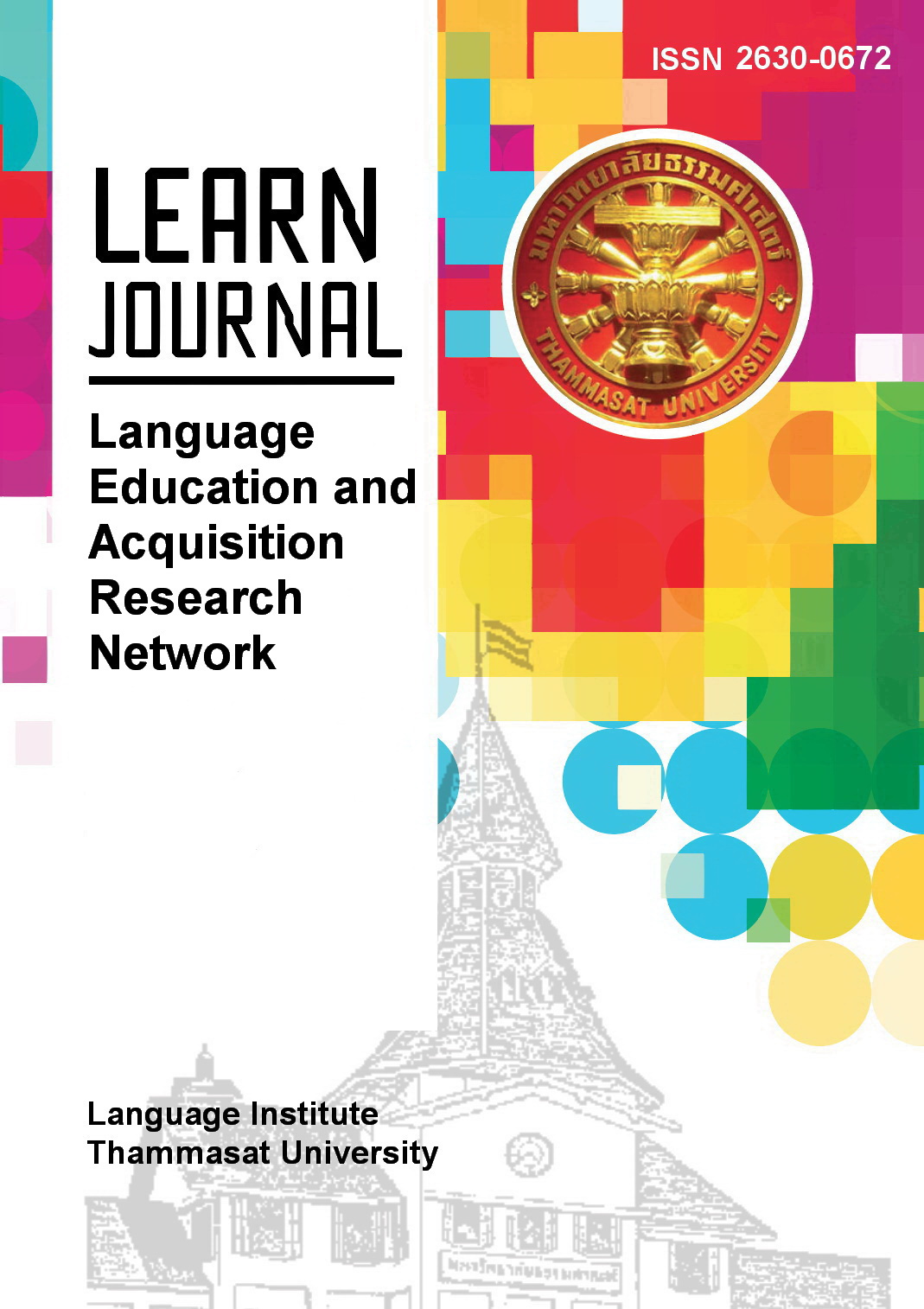Thai Flight Attendants’ Intercultural Sensitivity and Topics in Intercultural Communication with Muslim Passengers
Main Article Content
Abstract
Besides English proficiency, intercultural communicative competence is a desirable qualification for flight attendants. An under-researched cultural group of Muslim passengers was the focus of this mixed-method study which investigated Thai flight attendants’ intercultural sensitivity and related biographical details. Topics in intercultural communication between Muslim passengers and Thai flight attendants were explored. Data collected from 416 self-rated questionnaires on intercultural sensitivity were completed by a purposively selected sample and were analyzed using chi-square test and frequency count. The interview data from a total of 45 Muslim passengers as well as both Muslim and non-Muslim Thai flight attendants were analyzed based on content analysis. The findings showed that most Thai flight attendants rated themselves with a high score in intercultural sensitivity. The factors significantly associated with intercultural sensitivity were sex, work duration, job position, and being ex-crew at the significance level of 0.05. Qualitative findings suggested that three major topics, which were the concept of halal, religious practices, and some additional topics, should be considered in training on intercultural communication with Muslim passengers through English language teaching (ELT). Implications for both airlines and pedagogy are discussed in this paper.


